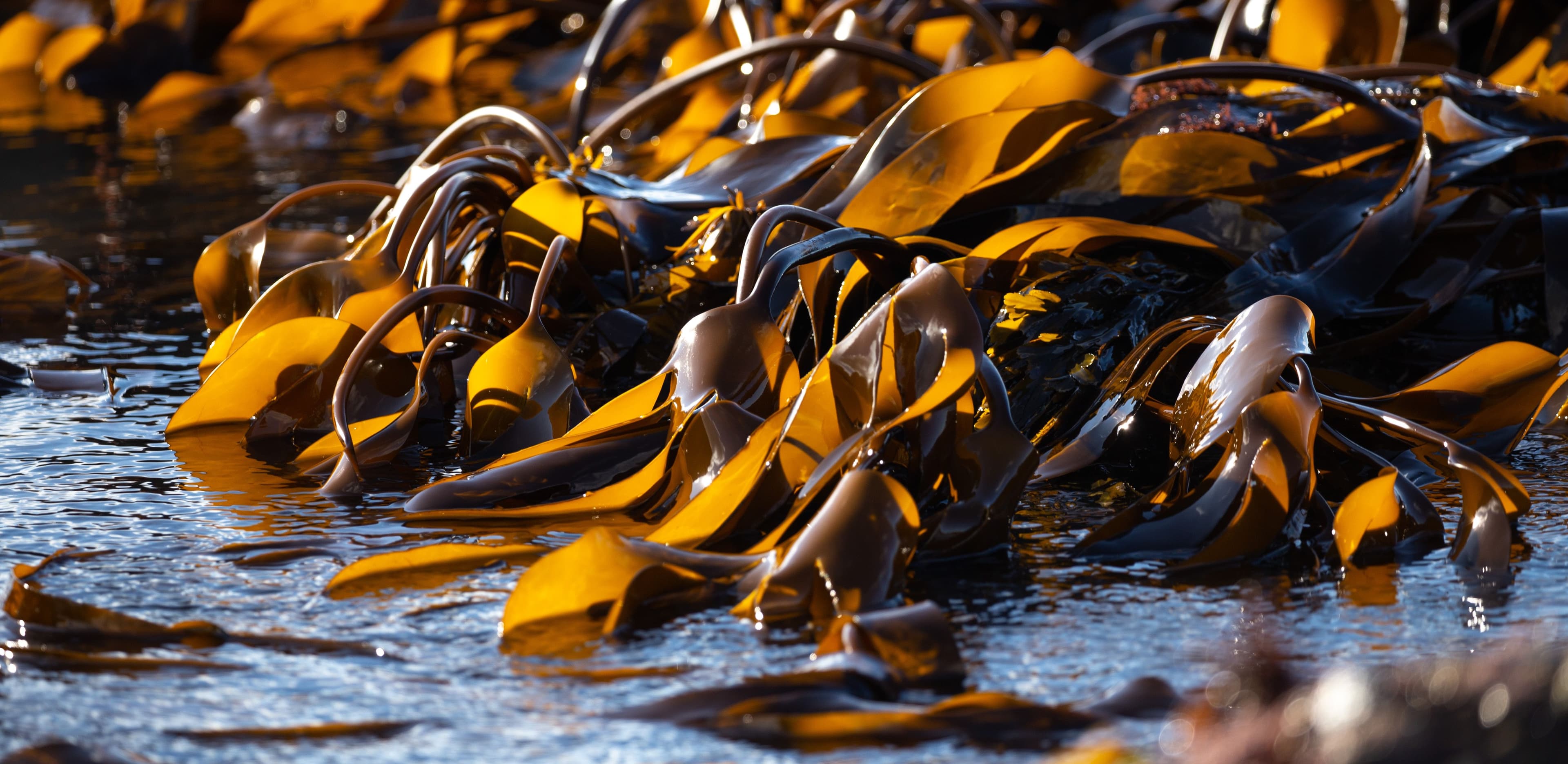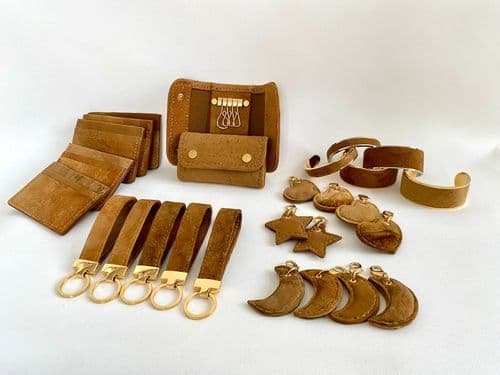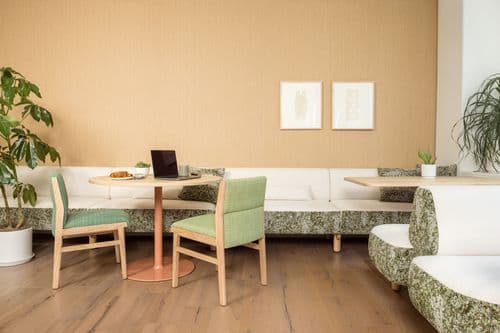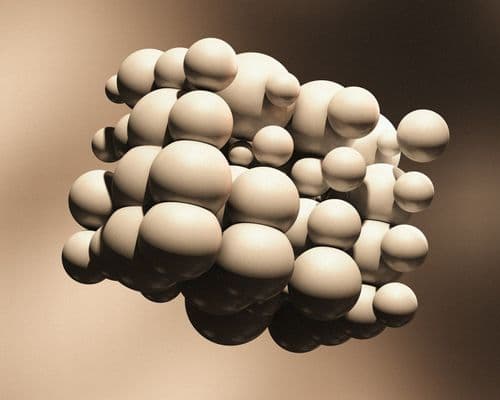1. B’ZEOS: combating the plastic problem with seaweed alternative
Headquartered in Oslo, Norway, B’ZEOS began its journey in 2017 and is based on a foundation of collaboration, technical expertise, and partnerships across the seaweed ecosystem.
They’ve pivoted from their initial edible straw project to developing flexible, eco-friendly packaging and securing grants for their innovative work, such as the PlastiSea EU Grant.
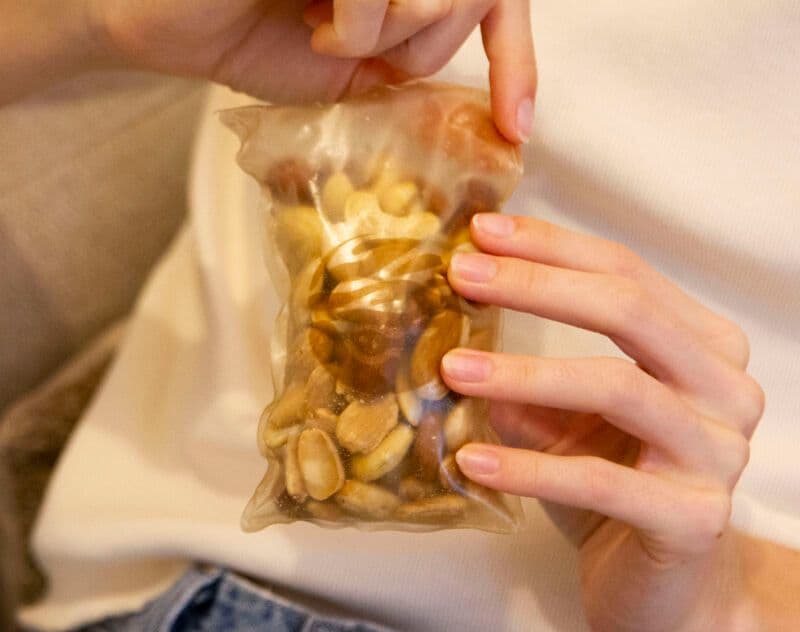
Safeguarding the ocean with seaweed
B'ZEOS is pioneering innovative packaging solutions by harnessing the renewable biomass of seaweed to combat the pervasive issue of plastic pollution. The company's commitment to circularity ensures that its packaging solutions are designed with a holistic approach to sustainability, from sourcing to end-of-life.
B'ZEOS leverages the potential of oceans for seaweed farming, a carbon-negative crop that can play a crucial role in addressing climate change and ocean pollution. Carbon-negative crops absorb more carbon dioxide from the atmosphere than they emit. The standout feature of B'ZEOS' products is their complete sustainability. Their seaweed-based packaging is biodegradable and home-compostable, eliminating the need for recycling.
2. FlexSea: exploring the possibility of packaging beyond plastic
Founded by the duo of Carlo Fedeli and Thibaut Monfort-Micheo, FlexSea has its headquarters in London. While acknowledging plastic's unparalleled durability, FlexSea aims to address the critical issue of single-use plastic and its environmental challenges. They envision a future where packaging materials are derived from natural sources, serve their intended purpose, and return to nature without causing harm.
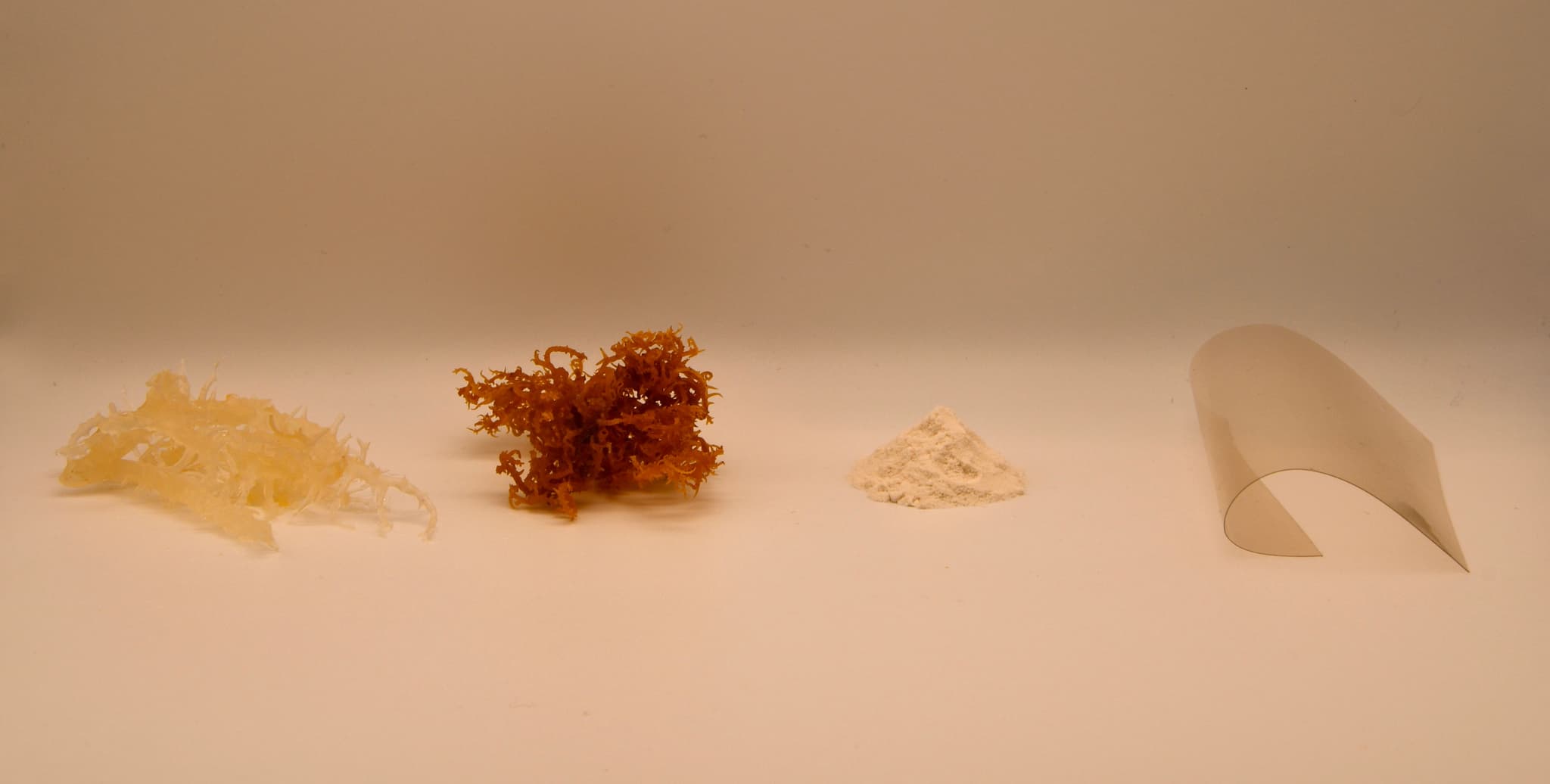
A new range of bioplastics
FlexSea's flagship product, the FlexSeable Film, is a compostable biopolymer material derived from seaweed and other natural additives. It offers superior properties such as high lipid and oxygen barrier, competitive pricing, and suitability for various applications. From packaging dry foods to non-food items, personal care products, and textiles, FlexSea's materials promise a more sustainable and eco-friendly future for packaging.
FlexSea also offers FlexTrusion Pellets, industry-standard compounds that can be used in various reprocessing methods, including 3D printing. These pellets provide several possibilities for creating products across different industries, from mulch films to medical devices.
3. Sway: replenishing the planet from sea to soil
Sway is a company that combines the natural properties of seaweed with advanced materials science to create innovative replacements for plastics, all while maintaining high-performance standards. They aim to extend the ocean's inherent generosity, promoting life from sea to soil and catalyzing climate solutions. Their seaweed-derived packaging is designed to be home-compostable. The trio of Julia Marsh, Matt-Mayes, and Leland Maschmeyer founded the California-based company in 2020.
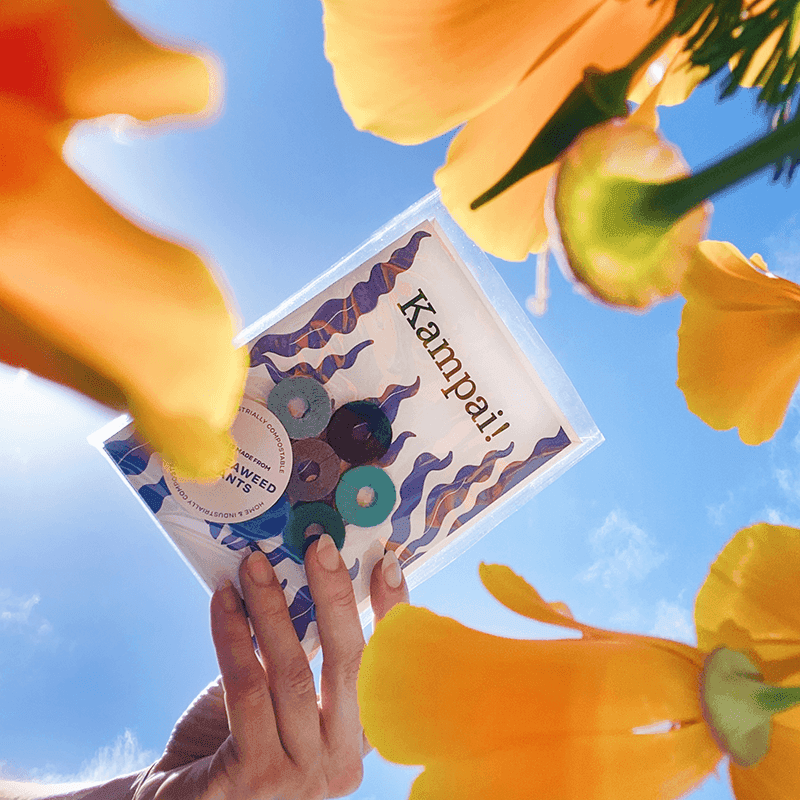
Seaweed film for all
Sway’s flagship seaweed film has various applications, including polybags, pouches, product windows, fashion, accessories, personal care, and dry goods. Sway's flagship film offers an eco-conscious solution for businesses seeking sustainable and functional packaging alternatives. Sway has also partnered with brands like Graf Lantz and Ales Grey to bring seaweed packaging to their products.
4. Notpla: making packaging disappear
Notpla was founded by Rodrigo Garcia Gonzalez and Pierre Paslier and has its headquarters in London. The company is committed to creating packaging that leaves no lasting environmental footprint. Their products are designed to biodegrade naturally.
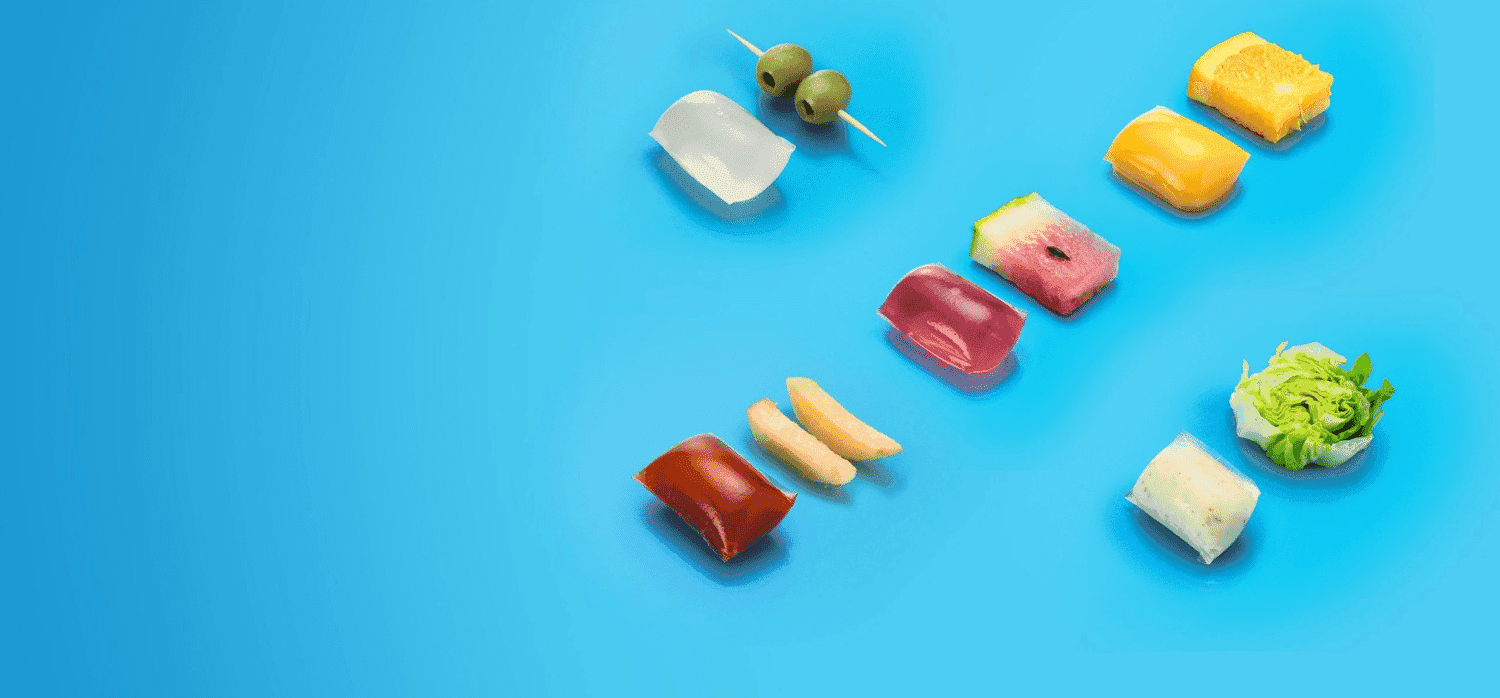
Versatile seaweed packaging range
Notpla’s product portfolio encompasses a range of innovative materials, each designed to address specific environmental and packaging challenges. Their products include coatings for food containers, edible bubbles to replace plastic packaging for liquids, seaweed paper, flexible films, pipettes for single-dose edible oils, rigid materials, and unique pearls, all aimed at reducing plastic usage and promoting eco-friendly packaging across various industries.
5. Kelpi: reducing the demand for fossil fuels with seaweed packaging
Kelpi is an innovative company dedicated to reducing the demand for fossil fuels and addressing climate change by using seaweed to create unique biopolymers for making bioplastics. The England-based company was founded in 2020 by Murray Kenneth, Neil Morris, and Chris Chuck.
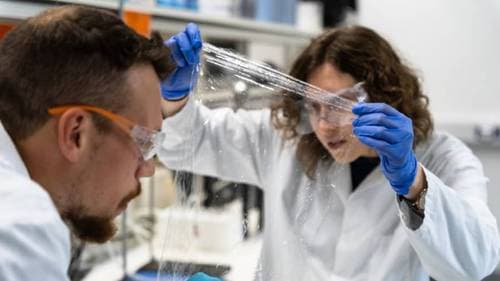
Leading the wave of new seaweed-based biotech businesses
Kelpi specializes in pioneering sustainable bioplastics made from seaweed, collaborating with brands to adapt their patent-pending bioplastic technology to specific requirements. Kelpi's products include polybags for fashion, compostable bioplastic film with a strong oxygen barrier for beverage brands, bioplastic coatings for hot food trays, and next-generation thin-film solutions that serve as replacements for conventional materials.
6. Zerocircle: a zero-waste lifestyle is possible with seaweed
Founded by Neha Jain in 2020, Zerocircle is dedicated to using seaweed as a versatile and sustainable alternative building block to create bio-alternatives to everyday products. The company's mission is to enable organizations to develop entirely circular solutions and generate zero waste, making sustainable living as convenient as possible.
)](/_next/image?url=https%3A%2F%2Fstorage.googleapis.com%2Ftocco-cms%2FZerocircle_product_fd0e4ac9e4%2FZerocircle_product_fd0e4ac9e4.jpg&w=2048&q=75)
Grease-proof packaging innovations
Zerocircle's seaweed-based coatings provide excellent grease and oxygen barrier properties without the harmful effects of plastic or synthetic coatings. Zerocircle also makes tree-free paper from sargassum, a brown algae grown excessively due to human activities. This paper is recyclable and biodegradable, offering versatile applications ranging from food packaging to clothing tags and mono cartons. Zerocircle’s pellets can be used for thin films that are 100% biodegradable, with applications in personal care, fashion, and food and beverage industries.
7. Eranova: changing the plastic planet with algae
Eranova is a France-based biotechnology company co-founded by Philippe Michon and Philippe Lavoisier in 2016. The company focuses on reducing plastic waste by transforming green algae into bio-based resins.
)](/_next/image?url=https%3A%2F%2Fstorage.googleapis.com%2Ftocco-cms%2Feranova_resins_fd718c7eaf%2Feranova_resins_fd718c7eaf.jpeg&w=2048&q=75)
Innovative algae-based resin
Eranova offers a disruptive and patented process to transform green algae into various types of resins suitable for different plastics industry processes. Their four bio-based resins have low carbon impacts and are designed to be compostable, biodegradable, reusable, or recyclable, making them environmentally friendly and versatile. These resins have the potential to revolutionize the industry by reducing its environmental footprint and providing sustainable alternatives for various applications, from meal trays to composite materials.
8. Algopack: reducing plastic dependency with algae-based alternatives
Algopack is a biotech startup based in Saint-Malo, Brittany, France. Founded in 2010 by Rémy Lucas, Algopack’s approach to sustainability is hinged on reducing our dependence on petroleum-based plastics by replacing them with algae-based materials. Thus, they create products with a positive environmental impact sourced from renewable biomass.
)](/_next/image?url=https%3A%2F%2Fstorage.googleapis.com%2Ftocco-cms%2FAlgopack_packaging_84872cc7d4%2FAlgopack_packaging_84872cc7d4.jpg&w=2048&q=75)
With algae innovations, who needs plastic?
Their Algopack® and Algoblend® range cater to various sectors using plastics, from automotive and office supplies to domestic appliances, furniture, construction, toys, and more. There’s also the “Eco Cup” goblet made of Brenton algae that can replace single-use cups and reduce our plastic footprint. These mugs are reusable, microwavable, recyclable, BPA-free, and safe for drinks.
